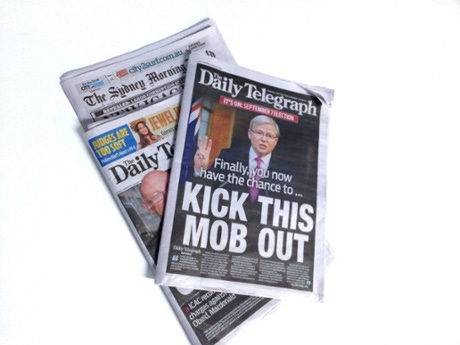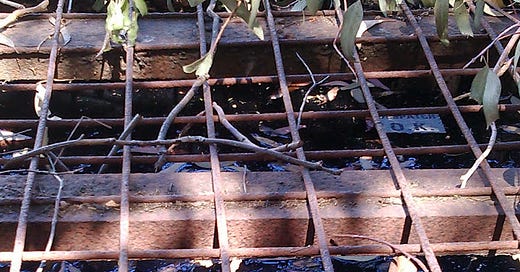
NSW, Australia
They might work for the Thai Tourist Police and the Thai Police, these foreigners, but they weren't there to help tourists. They were there to prey on the weak and the vulnerable. They were there to prey on people at low points in their lives. And they were there to act as a synergy with the local mafias. They besmirched themselves and they besmirched others. The Commando was a joke from the beginning, and in the end, after the man had told so many lies, he didn't know whether the book he ghost wrote, Confessions of a Royal Marine Commando, held very much truth or not. Truth was not in their nature. Smirking self-congratulation, that was more their form. Eighteen months after he had left Chiang Mai, they were still robbing him. First the commando had taken several of his titles and sold them on Amazon without his knowledge, only taking them down after being beseiged with thousands of his outragged emails, and never remitting a single baht of royalties. Not one. And never apologising.
The lies just continued across time. The agreement that they would split royalties 50:50, the man's story, Michael's work, was never kept. Thailand attracted some of the biggest scumbag foreigners on Earth. Unfortunately, he had to meet some of them. At first, lonely and horrified that the rank arms of the Bangkok mafia had followed him even here, when he just wanted peace and to get on with his own work, he had fallen for the patter about being a friend. Being honest. I would never lie. He knew that people who declared their friendship never were. That people who had to state that they were honest never were. But somehow, in his increasingly forlorn, saddened and desperate state, he abandoned all reason. Like a prisoner reaching out to his jailer. And in some ways, the stories the Commando told, he was intrigued. Yes, intrigued by pond scum. He might once have thought he was a good job of character, but had long ago realised he wasn't. And possessing the unhelpful trait of being too trusting, of being surprised when people lied to him, didn't help.
Thailand is a dangerous place, and a dangerous destination. That it has a tourist industry at all is a feat of marketing. And a tribute to the many fascinating beauties of the culture, the landscape and its peoples. But at least the locals have an excuse: they feel their country is being over run, they have little empathy or understanding the foreigners who decide to make the place their home. But the foreigners have no excuse, except perhaps that they were born morally defective. Or that, having spent their lives as criminals or as criminal police, they are just continuing on in the life they've always known. More than 18 months after he had left Chiang Mai, and the Commando was still trying to rob him. It incensed him, perhaps pointlessly, that the dark wraiths of a dismal place and a dismal time would continue to reach out and try to rob him even now, after he had been robbed so frequently and so contemptuously, any kindness taken as weakness, jeered at for being stupid enough to have allowed them to rob him, and then, of course, robbed again.
At first the Commando had just been another figure in the cycle of comfortably well off, utterly self-satisfied Australians who cycled through the Guesthouse he had once thought would be a refuge. And which had promptly turned into another nightmare. The staff were friendly; the owner's wife, or co-owner, jpwever the arrangements went, spoke excellent English and was kind to him. And being Thai herself, knew enough of Thai behaviour to understand what was going on. And not to join in. Always kind; and through odd comments, let him know. She knew he knew she knew. If that made sense. But the thuggish men, the husband and the Commando, were more than happy to join in. The guesthouse might be listed as gay friendly by Lonely Planet, but they had no idea why, and it was not true. Traditionally Australian men had been homophobic to the core. This had changed in recent years, with the Labor Party, having grown tired and compromised by the Greens, adopted gay marriage as a "progressive" cause, as if mimicking heterosexual forms of relationships was in fact progressive, but hadn't seeped into the ranks of older men.
And so, he had one recurring, stupid thought, after having been robbed and bullied yet again, all this time later. If they wanted to determine whether the Commando really wrote Confessions of a Royal Marine Commando, they should try one simple experiment. Dictate a paragraph to him. They would soon realise the man was barely literate. And as someone who worked for the Royal Thai Tourist Police, had perpetrated a fraud on an Australian citizen.
THE BIGGER STORY:
http://www.foxnews.com/politics/2013/10/30/obama-learning-afterward-about-sensitive-issues-raises-question-about-approach/
A string of embarrassing episodes for the Obama administration that the president didn't seem to know about until the public did is raising questions about why he wasn’t in the loop and who should have told him.
Knowledge that the IRS was excessively targeting Tea Party groups and other conservative organizations during the 2012 election cycle arguably would not reach the president’s desk before the news media learned this spring.
But reports over the past week weeks that President Obama was not aware of the National Security Agency monitoring German Chancellor Angela Merkel's cell phone nor of the technical problems that plagued the ObamaCare website ahead of its Oct. 1 launch suggests he is taking too much of hands-off approach or perhaps not surrounding himself with people who can keep him informed, critics say.
Also this week, NBC reported first that the administration in 2010 that ObamaCare was written in such a way that the president’s promise about Americans being able to keep their health insurance plans could not be kept.
Maine Republican Sen. Susan Collins, said the chamber’s Intelligence Committee of which she is a member was not aware of the NSA doing surveillance on foreign leaders but the REAL question is whether the president knew and if he didn’t she assumed he would ask for the resignation of whoever was responsible for not telling him.
That the president didn’t know about the United States monitoring the phone calls of allies also seems surprising considering the program started in the Bush administration after the 9-11 terror attacks.
White House Press Secretary Jay Carney recently shrugged off a question about whether the president is out of the loop, suggesting it was just another partisan attack.
“It’s certainly true that you've conflated a bunch of very disparate issues,” he told a reporter. "Republican critics say a lot of things."
The Republican National Committee sees a pattern. The group has released a list of incidents -- under the titled “Bystander President” -- in which Obama appeared to caught unaware, such as the request for additional security at the U.S. consulate in Benghazi, Libya, prior to the fatal Sept, 11, 2012 terror attacks and about the Justice Department's use of subpoenas against reporters.
Presidential historian Stephen Hess, of the Brookings Institution, says sometimes it's convenient for a commander in chief to be out of the loop, but his aides had better pick those times carefully.
Hess suggests in the long run, Mr. Obama might be able to weather the storm over the NSA's aggressive spying, especially since it seems to predate his administration. But the botched ObamaCare rollout may be more problematic.
“That's a loop he had better be in because that is the legacy of his whole administration,” Hess told Fox News this week. “That's a little different than whether Chancellor Merkel is upset today because somebody in the NSA was listening in on her cell phone."
Politico has called claims the president was unaware of the recent episodes his “in-the-dark defense.”
“The bottom line explanation in all these instances is the same: President Obama didn’t know any more about the scandal than the ordinary person on the street, and certainly wasn’t involved in decision-making processes — at least, not until long after potential problems arose.”
http://www.theguardian.com/media/2013/oct/30/kevin-rudd-murdoch-press-bruce-hawker

Kevin Rudd made no secret of his fury at the strong anti-Labor editorial stance taken by News Corp papers during the 2013 election campaign, but a new book by one of his closest advisers reveals how hard he first tried to find favour with News after he returned to the prime ministership.
A diary written through the turbulent time by strategist Bruce Hawker, published as The Rudd Rebellion: The Campaign to Save Labor, argues that News Corp’s campaign against Kevin Rudd and Labor played a significant role in Labor’s loss because the newspapers did Tony Abbott’s “dirty work” for him, allowing the Coalition leader to stay positive and persistently blowing the Labor campaign off course.
“News Corp is easily the most powerful political force in Australia – bigger than the major parties or the combined weight of the unions … I saw how, on a daily basis, the storm of negative stories that emanated from News Corp papers blew our campaign off course,” he writes.
But Hawker also reveals that in the first days after Rudd returned to the leadership, he and his advisers were expecting, and working hard for, a more positive relationship with the organisation that controls 60% of Australia’s print media circulation.
A major concern for Rudd and his advisers one week after he resumed the leadership, for example, was one News Corp paper’s angry reaction because the Rudd team had “dropped” an exclusive story to another News Corp paper.
Rudd had determined the federal party would intervene in the scandal-ridden NSW branch and the announcement was to be made on Thursday, 4 July.
“Kevin wants to drop it to the Oz tonight. I can see trouble brewing – this is too big a yarn to allow one paper special treatment … Sure enough, when [NSW Labor secretary] Sam Dastyari found out that [Daily Telegraph political editor Simon] Benson was not getting an exclusive he became very worried and said that Benson would be cranky. Cranky was an understatement – Simon went ballistic … I placated him and promised him a better story down the line.”
Hawker writes that later that evening, Rudd had also “phoned [Paul] Whittaker, the editor of the Telegraph, and given him some quotes to go under Simon’s byline”. It is unclear if these quotes were ever printed.
A few days later he relates leaking exclusively to the Sunday Telegraph the story that Labor would bring forward the end date of the fixed carbon price, a few days after that how Benson caught a VIP flight with the new prime minister to “do a story on our team” and two days later how Rudd had invited Chris Dore, the new editor of News Corp’s Queensland tabloid, the Courier-Mail, to a meeting at his Brisbane home.
But one week before Rudd called the election, his team began to fear that all the special treatment might not be rewarded.
“On a more ominous note we are hearing reports and getting intelligence from within News Corp that a campaign was being co-ordinated within the company to inflict as much damage as possible on the Labor government. We didn’t have to wait long to see evidence of this.”
“There is little doubt that [New York Post editor-in-chief] Col Allan’s return is linked directly to the election and a determination to use News Corp’s key tabloids to drag down the government. There have been reports of a meeting of News Corp editors and Col Allan where his instruction was to go hard against Rudd.”
Hawker’s response was to commission research from Labor pollster John Utting to “see if News Corp actually does change people’s minds and if there are ways of successfully countering an attack or even pre-empting one by reference to Murdoch’s financial or political ambitions”.
He records discussions of a counter-strategy against the News Corp “war”, including advertising in the papers themselves or on radio shows with a similar market, like Sydney’s 2GB or Brisbane’s 4BC, research to quantify and identify the bias and messaging based on the commissioned polling research.
“I took the [leadership] team through the polling, including how the fact that Rupert Murdoch is no longer an Australian citizen is an issue among the focus groups tested.
In Hawker’s analysis the News Corp attacks were well planned and co-ordinated, allowed Abbott to “stay positive” – “he didn’t have to do any attacking – News Corp was doing it for him on a daily basis” and left Labor caught in a “pincer movement” between News Corp attacking with news stories and the Liberal party’s negative advertising.
He says the attacks served to “undermine Rudd’s credibility and legitimacy … and fed shock jock radio programs, which continued throughout the day the attacks started by the newspapers in the morning”.
That meant attention was diverted from any issues Labor wanted to run, for example the News Corp papers’ stories after the first debate about Rudd’s use of notes, rather than the issues in the debate, or the story accusing Rudd of being rude to a makeup artist before the second debate.
“They allowed News Corp reporters to suggest that Rudd was off message and chaotic in his dealings with the media when, in fact, the same news organisation set up the ambushes. Invariably he would spend half of his press conference defending or explaining what really happened, for example with the makeup artist.”
And he does not believe the fact that the anti-Labor swings were lowest in NSW and Queensland “where News Corp’s anti-Rudd invective was at its most virulent” should be used as an argument to downplay the role of News in the campaign.
Early in the campaign Rudd adopted a strategy of “calling out” News Corp and his view that it was running a deliberate, commercially motivated campaign against him, but later in the campaign Hawker counselled the former leader to restrain his anger.
In the second week of the election campaign, Hawker remarks that Rudd’s “confidence needs building after the pounding he has taken at the hands of News Corp … News Corp even ran a story yesterday showing Kevin’s son, Marcus, smoking a cigar at a party to celebrate his last day at school two years ago. I explained to Kevin that this was an attempt to ‘mind fuck’ him and he just has to resist the temptation to swing back.”



